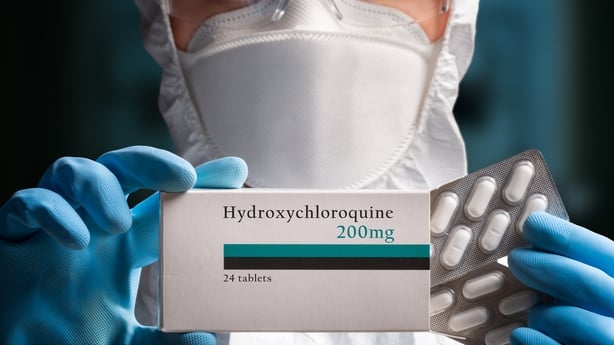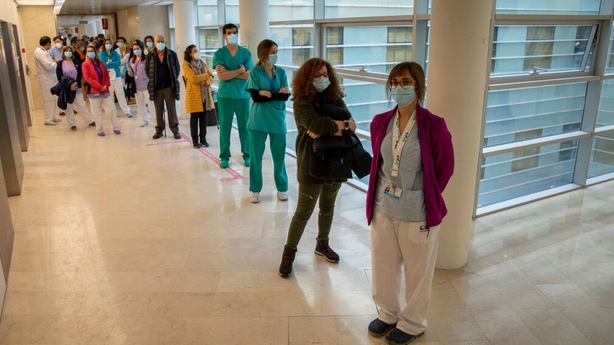The World Health Organization has announced major international trials of three drugs to find out whether they improve the condition of hospitalised Covid patients.
Artesunate, imatinib and infliximab will be tested on thousands of volunteer patients in more than 600 hospitals in 52 countries.
Artesunate is a treatment for severe malaria; imatinib a drug used for certain cancers and infliximab a treatment for immune system disorders such as Crohn's and rheumatoid arthritis.
"Finding more effective and accessible therapeutics for Covid-19 patients remains a critical need," said WHO director-general Tedros Adhanom Ghebreyesus.
The coordinated research across dozens of countries allows the trial to assess multiple treatments using a single protocol, thereby generating robust estimates on the effect a drug may have on mortality, including moderate effects, said the WHO.
The drugs were chosen by an independent expert panel for their potential in reducing the risk of death in hospitalised Covid-19 patients.
They were donated for the trial by their manufacturers and are already being shipped out to the hospitals involved.

Previous trial's dead end
The testing of artesunate, imatinib and infliximab on Covid-19 patients is the second stage of the WHO's Solidarity hunt for effective treatments against the killer disease.
Previously, four drugs were evaluated by the Solidarity trial, involving almost 13,000 patients in 500 hospitals across 30 countries.
The provisional results issued in October showed that remdesivir, hydroxychloroquine, lopinavir and interferon had little or no effect on hospitalised patients with Covid-19.

The final results are due out next month.
"We already have many tools to prevent, test for and treat Covid-19, including oxygen, dexamethasone and IL-6 blockers. But we need more, for patients at all ends of the clinical spectrum, from mild to severe disease," Mr Tedros told a news conference.
The WHO Covid Therapeutics Advisory Group recommended evaluating the anti-inflammatory properties of artesunate, which has been extensively used in the treatment of malaria and other parasitic diseases for more than 30 years, and is regarded as being very safe.
A randomised clinical trial in the Netherlands reported that imatinib, a small molecule tyrosine kinase inhibitor, might confer clinical benefit in hospitalised Covid-19 patients.
'First Spanish vaccine'
Meanwhile, Spain's medicines agency has approved a first round of clinical trials on humans for a Covid vaccine developed by Spanish firm Hipra.
"This is the first trial on humans of a vaccine made in Spain," the agency said in a statement.

Dozens of volunteers will be recruited from Spanish hospitals "as soon as possible" for the clinical trials, it added.
Hipra, which is based in the northeastern city of Girona, said it could produce up to 400 million doses of the vaccine in 2022 and 1.2 billion in 2023 if the jab is approved.
"Today we have taken a big step in the fight against the pandemic," Prime Minister Pedro Sanchez said in tweet shortly after the agency approved the trials.

